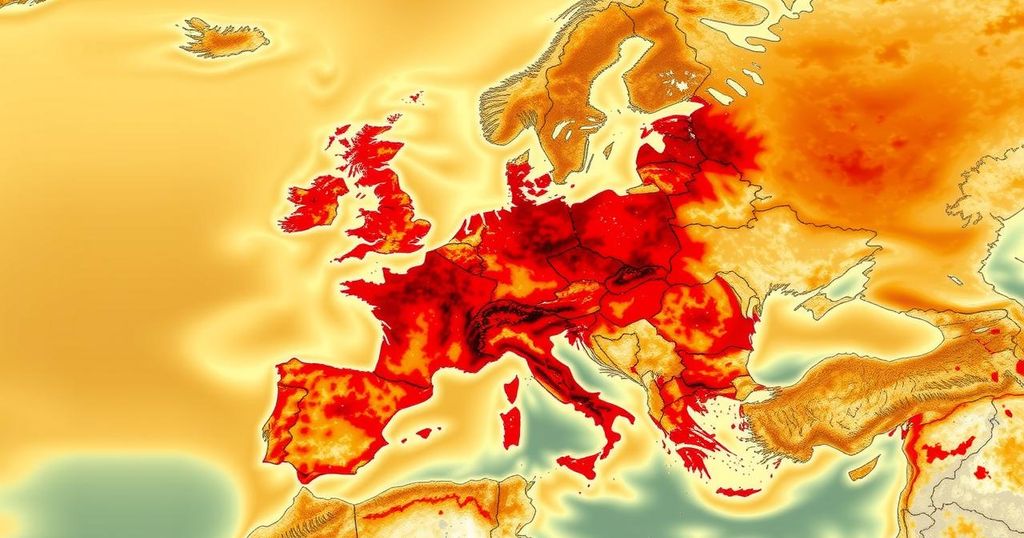Weather
ATHENS, CHICAGO, CLIMATE, COPERNICUS, COPERNICUS CLIMATE SERVICE, DAYTON, EUROPE, EUROPEAN, EUROPEAN CLIMATE AGENCY, FELIX MARQUEZ, GEO MULONGO, GLOBAL WARMING, GREECE, ITALY, IZZY KELLAR, JOSHUA A. BICKEL, LYNNE SLADKY, MIAMI - DADE COUNTY HOMELESS TRUST, MILAN, NEWS, NORTH AMERICA, PRIZES, UNITED STATES, WEATHER, WEATHER FORECAST, YMCA CAMP KERN
Fatima Alavi
0 Comments
2024 Set to be the Hottest Year on Record, Warns European Climate Agency
The European climate agency Copernicus indicates that 2024 will likely be the hottest year on record, predominantly due to greenhouse gas emissions, having crossed the 1.5-degree Celsius warming threshold. The global financial response to climate adaptation remains insufficient, demanding urgent action as the world prepares for COP29 discussions on clean energy transition strategies.
According to the European climate agency Copernicus, the Earth is poised to experience its hottest year on record for the second consecutive time, having recently surpassed a worrying threshold of 1.5 degrees Celsius (2.7 degrees Fahrenheit) in warming compared to pre-industrial averages. Carlo Buontempo, the agency’s director, emphasized that this alarming trend is driven by increasing greenhouse gas emissions, underscoring the persistent nature of global warming. The agency indicated that contributing factors include El Niño phenomena and volcanic activity.
As preparations for the upcoming U.N. climate conference, COP29, are underway, the need for enhanced financial commitments and strategies to mitigate climate change impacts grows urgent. Despite an increase in funds allocated for climate adaptation—reportedly an all-time high of $28 billion globally in 2022—this figure falls significantly short of the estimated annual requirement of $187 to $359 billion needed to effectively address climate challenges. UN Secretary-General Antonio Guterres remarked, “Humanity’s torching the planet and paying the price.” Furthermore, this record heat, while indicative of a single year’s extreme event, also serves as a reflection of ongoing trends in climate change and the critical importance of global collective action.
The declaration of 2024 as a likely record-breaking year for global temperatures raises significant concerns about the long-term implications of climate change driven largely by human activity, particularly from greenhouse gas emissions. This year’s surpassing of the 1.5-degree Celsius mark has prompted discussions about the adequacy of international climate agreements, specifically the Paris Agreement, in limiting global warming to avoid the worst effects of climate change. The situation is compounded by signals such as El Niño and volcanic eruptions that influence short-term temperature fluctuations, yet the overarching trend remains one of alarming warming.
In summary, the Copernicus climate agency’s report indicating 2024 as the likely hottest year on record highlights a troubling escalation of global temperatures due to ongoing climate change. The urgent need for unprecedented financial resources to adapt to these changes, as stated in various recent reports, illustrates the critical nature of forthcoming negotiations at COP29. Collective action, bolstered by global cooperation and scientific evidence, is essential to counteract the severe impacts of climate change well before the new norms become entrenched on our planet.
Original Source: apnews.com




Post Comment